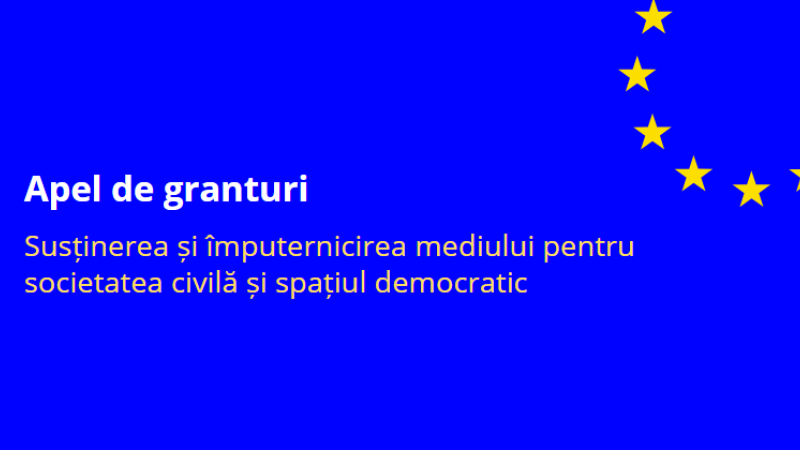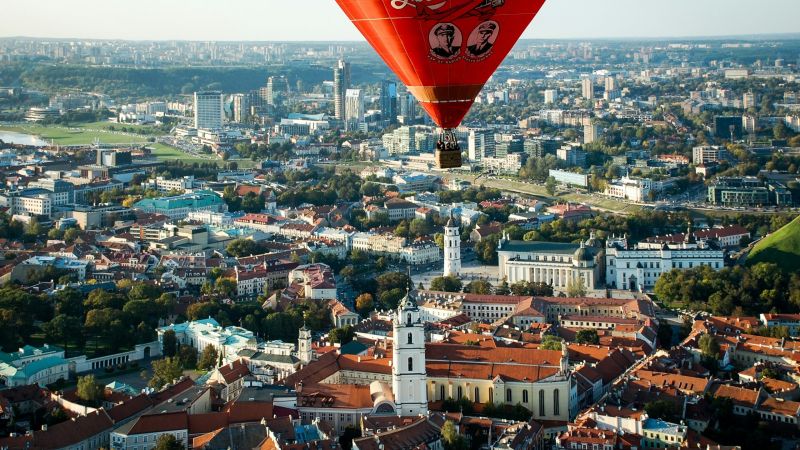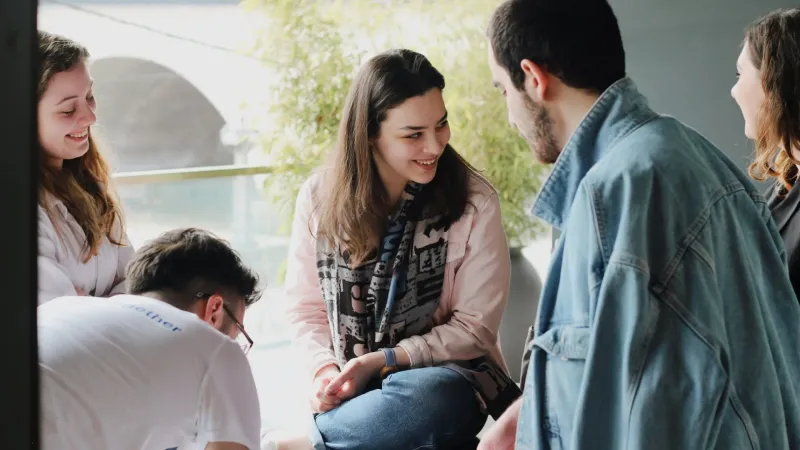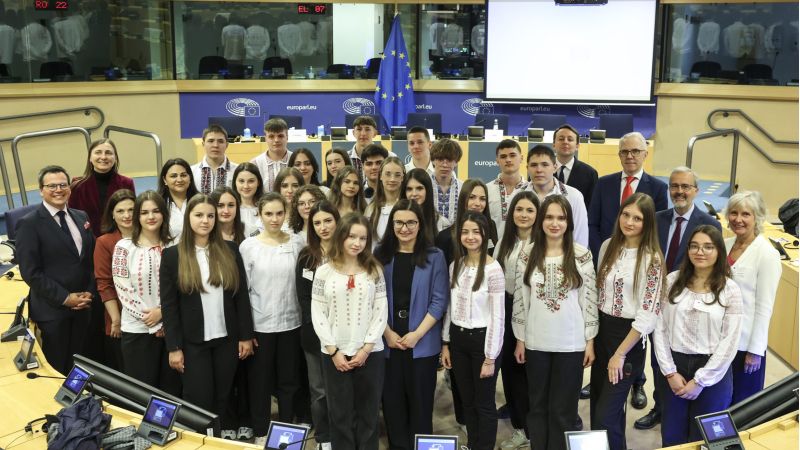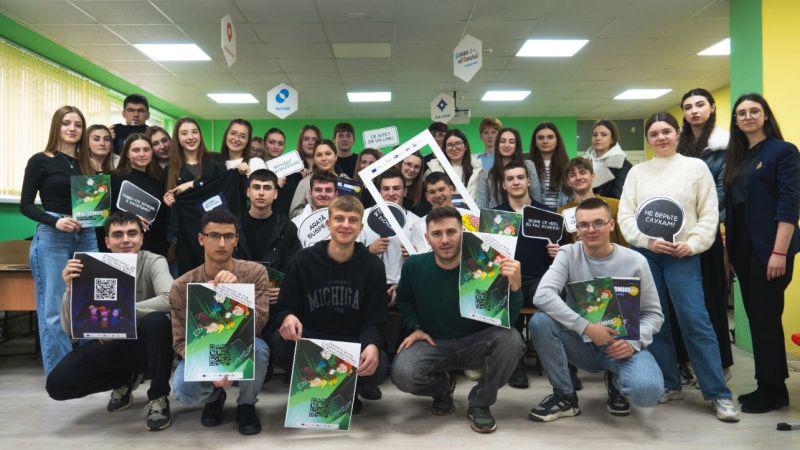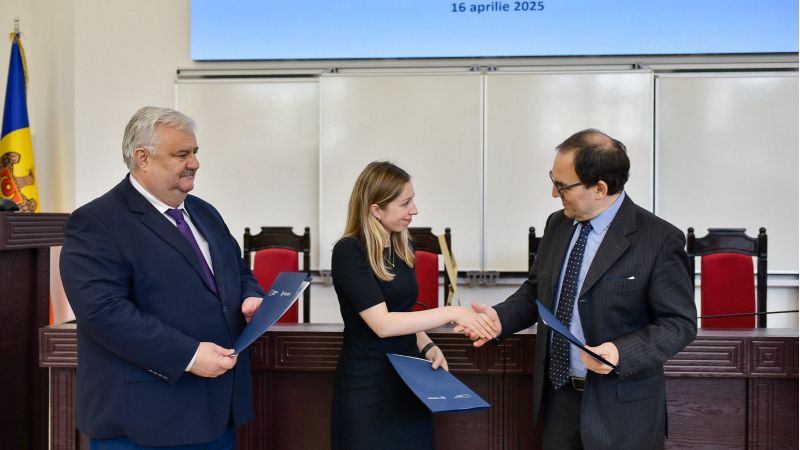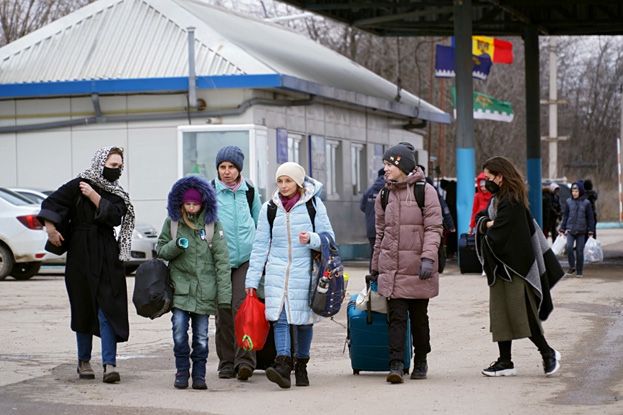
PROIECTUL EVA, FINANŢAT DE UE, SPRIJINĂ FEMEILE UCRAINENE CARE ȘI-AU PĂRĂSIT ŢARA DIN CAUZA INVAZIEI RUSIEI ÎN UCRAINA
Multe femei sunt neajutorate în faţa războiului și nu au o destinaţie clară
Sute de mii de ucraineni își părăsesc casele pe măsură ce ameninţarea invaziei rusești s-a transformat în război adevărat începând cu dimineaţa zilei de 24 februarie. Proiectul Uniunii Europene „Promovarea egalităţii de gen în raioanele Cahul și Ungheni (EVA)” împreună cu autorităţile publice locale din Cahul, voluntarii și societatea civilă din regiune s-au mobilizat pentru a le oferi ajutor, a-i îndruma și a-i găzdui.
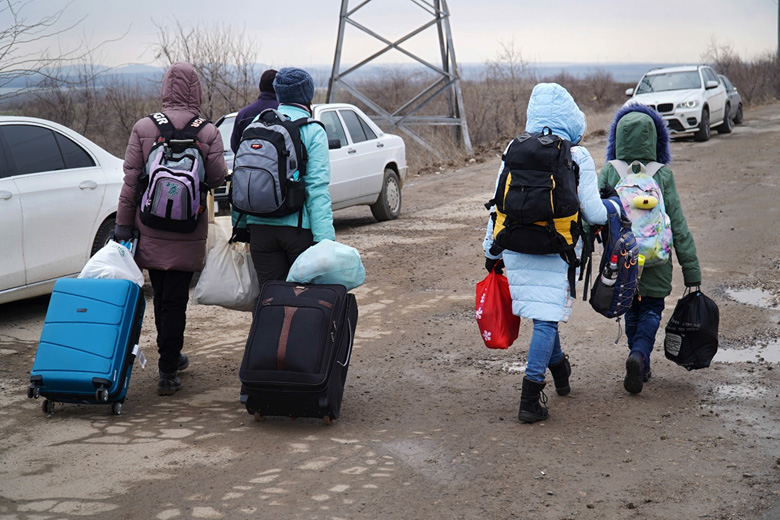
Imediat după începerea războiului în Ucraina, autoritățile publice din municipiul Cahul au creat o Celulă de Criză în incinta Primăriei Cahul care funcționează non-stop. În cadrul celulei se depozitează și distribuie donațiile și ajutoarelor umanitare primite atât de la agenții economici cât și persoanele fizice. De asemenea, se oferă plăpumi, conserve, produse de igienă, dar și informații privind alimentarea refugiaților, precum și modalitățile de testare la COVID-19 și vaccinare la dorință.
Potrivit autorităților publice locale din Cahul, pe lângă Celula de Criză, au mai fost amenajate centre de plasament temporare pentru refugiații din Ucraina unde se cazează peste 100 persoane: căminul Universității de stat „B. P. Hasdeu”; sanatoriul „Nufărul Alb”; și Centrul Maternal din Cahul. Mulți dintre refugiați se bucură de generozitatea locuitorilor regiunii și sunt adăpostiți la oamenii din localitățile rurale din raion.
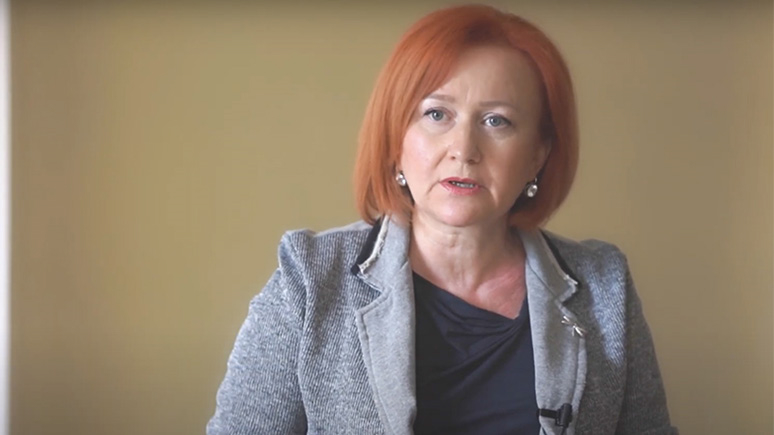
Mulți oameni oferă ajutor imediat, reacționează pe internet, se mobilizează, propun cazare, transport, haine, mâncare, servicii medicale sau de traducere. Unii dintre refugiați, care rămân pe un termen mai îndelungat, solicită să facă voluntariat și să-și ajute compatrioții, iar alții chiar privesc Republica Moldova ca o perspectivă de viitor.
O bună parte dintre refugiați ajung în Republica Moldova traversând punctul de frontieră Giurgiulești – Reni, pe sensul de intrare în Republica Moldova. În jur de 10.000 persoane traversează zilnic frontiera pe sensul de intrare în țară. Polițiștii și polițistele de frontieră conduc refugiații până la un cort improvizat unde le propun ceai sau cafea fierbinte. De aici, majoritatea dintre ei, mame și copii, se îndreaptă pe jos, aproximativ doi kilometri până la Vama Galați, frontiera cu România. Voluntarii organizează transport în special mamelor cu copii mici.
Irina a predat la Școala Waldorf în Odessa, iar acum a fost nevoită să părăsească orașul. Este înghețată de frig, însă cu greu se lasă convinsă să facă o pauză. Își face griji să ajungă până seara într-un loc sigur și cald.
„Vedem pe parcurs unde ajungem. Am putea merge și în Franța și în Elveția. Este o comunitate de profesori care ne-a invitat. Încă nu am decis în ce direcție să mergem. Important să ajungem la Vama Galați. Poate vom merge în Elveția. Acolo avem o comunitate școlară, prieteni, și vedem cum se aranjează lucrurile”,
a mărturisit Irina.
Printre cei care au trecut din Ucraina în Moldova, stând la coada kilometrică la propriu este și Galina, în vârstă de 40 de ani, fugind din Ismail, un oraș de subordonare regională în regiunea Odessa (din sud-vestul Ucrainei). Situat la o distanță de 192 km sud-vest de orașul Odessa și la 80 km de vărsarea brațului Chilia al Dunării în Marea Neagră, Ismailul este cel mai mare port la Dunăre din fosta Uniune Sovietică.
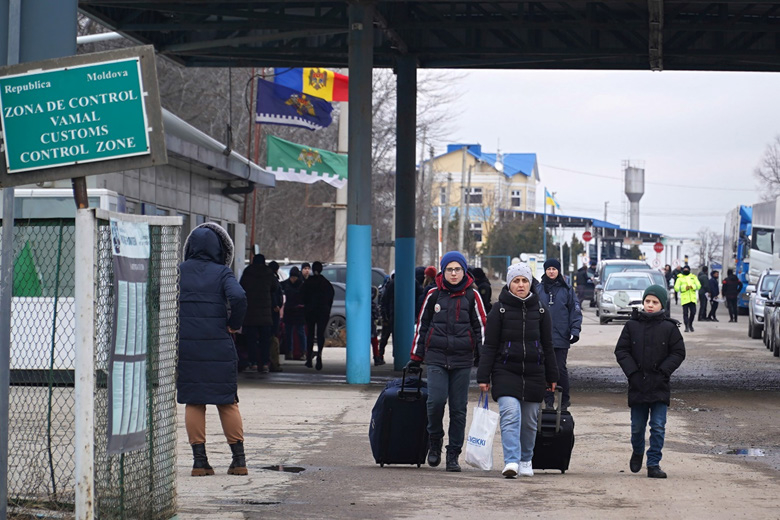
„Sunt debusolată. Toți fug. Am fugit și eu. Cu mare greu am luat această decizie. Nu am avut de ales. Trebuie să am grijă de băieți. Soțul meu a rămas să lupte. Am decis să plec cu lacrimi în ochi. Tot ce îmi doresc e să se termine războiul și să ne putem întoarce acasă. A rămas în Ismail toată munca mea de o viață. Casă și masă, au rămas toate acolo. În ultima vreme sunau sirenele tot mai des, apoi auzeam tot felul de sunete dinspre mare și nu puteam sta liniștită. Ne temem pentru viețile voastre. Vedem ce se întâmplă în Kiev, Nikolaiv sau Harkiv”
povestește Galina.
Galina nu știe încotro să meargă, însă ar dori să ajungă în Vama Galați. În România va lua o decizie mai promptă. Fluxul de refugiați se mărește. Mulți vin însoțiți de prieteni, rude sau animale de companie. Aliona are 33 de ani și fuge din Odessa, însoțită de cei trei copii.
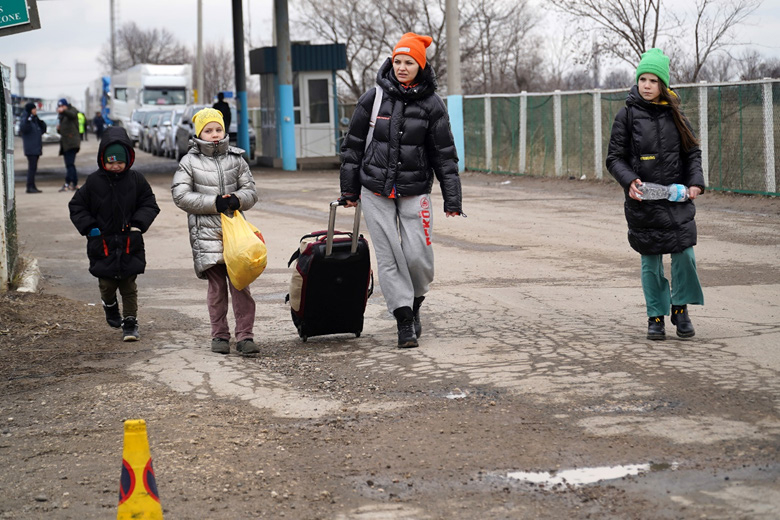
„În Odessa auzeam bombardamente zilnic. Oamenii mor, vedeți ce se întâmplă? Viața nu mai contează, nu valorează nimic. Se trage în militari și în oameni pașnici. Mor mame și copii nevinovați. Este ceva groaznic și înfricoșător. Harkiv, oraș în care am atâția prieteni, chiar dacă își doresc să plece, nu mai pot pleca. E imposibil să ieși. Și nu pentru că nu ar exista un coridor verde, ci pentru că sunt întruna bombardamente și e foarte periculos”,
spune Aliona.
Nici Aliona nu are o destinație clară spre care se îndreaptă:
„Sirenele zilnice ne sperie. Am stat și la subsol câteva zile, dar nu am mai putut suporta. Soțul meu a decis singur să rămână și să lupte pentru casa noastră. Sper să ajung în Bulgaria. Am o mătușă acolo. Ne-am scris câte puțin în perioada asta însă nimic nu e clar. Important să ajung acolo. Cunosc bulgara și chiar dacă mătușa nu m-ar ajuta, sper să găsesc vreo oportunitate de lucru.
